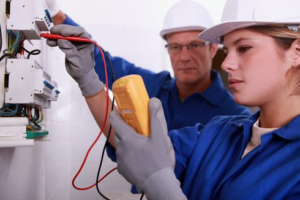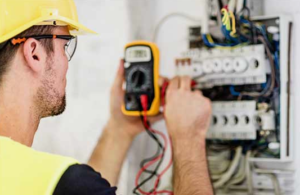The role and responsibilities of different kinds of electricians
The primary role of an electrician is to make sure all currents flow reliably and safely through equipment and outlets of particular places. Although they may require the same basic skills, all electricians are the same. It is therefore important that you decide what kind of an electrician you want to be.
Industrial Electricians
 These electricians work in manufacturing, chemical plants, energy production, and heavy industries. They have to handle jobs that deal with high power needs ranging from voltages of AC to micro levels of direct current. They are required to understand programmable logic, motor controls and should be able to troubleshoot several subsystems within these large industries and plants.
These electricians work in manufacturing, chemical plants, energy production, and heavy industries. They have to handle jobs that deal with high power needs ranging from voltages of AC to micro levels of direct current. They are required to understand programmable logic, motor controls and should be able to troubleshoot several subsystems within these large industries and plants.
Commercial Electricians
Commercial electricians work in locations that are accessed by the general public. As a result, a lot of emphasis is  placed on ensuring the safety of the electrical systems. They are usually hired by a commercial electrical contractor or a firm with lower power amounts than industries which can take care of office equipment and low-intensity lighting. In some cases, these electricians have to work on systems with a high voltage such as air conditioning.
placed on ensuring the safety of the electrical systems. They are usually hired by a commercial electrical contractor or a firm with lower power amounts than industries which can take care of office equipment and low-intensity lighting. In some cases, these electricians have to work on systems with a high voltage such as air conditioning.
Residential Electricians
Residential electricians, as the name suggests, mostly work on electrical systems in the home. Safety is, therefore, a major consideration here in order to protect the residents from major electrical disasters. Most wiring done for a residential electrical is a single phase but for homes with air washers, conditioning and refrigerators will require a two-phase circuit.
Although there are some minor jobs you can do for yourself like changing bulbs and replacing heaters, you should always consult a professional when it comes to electrical faults in your house. This will keep you safe from the dangers that come with electrical breakdowns. Get an electrician to do the work for you and keep your equipment and family safe.
